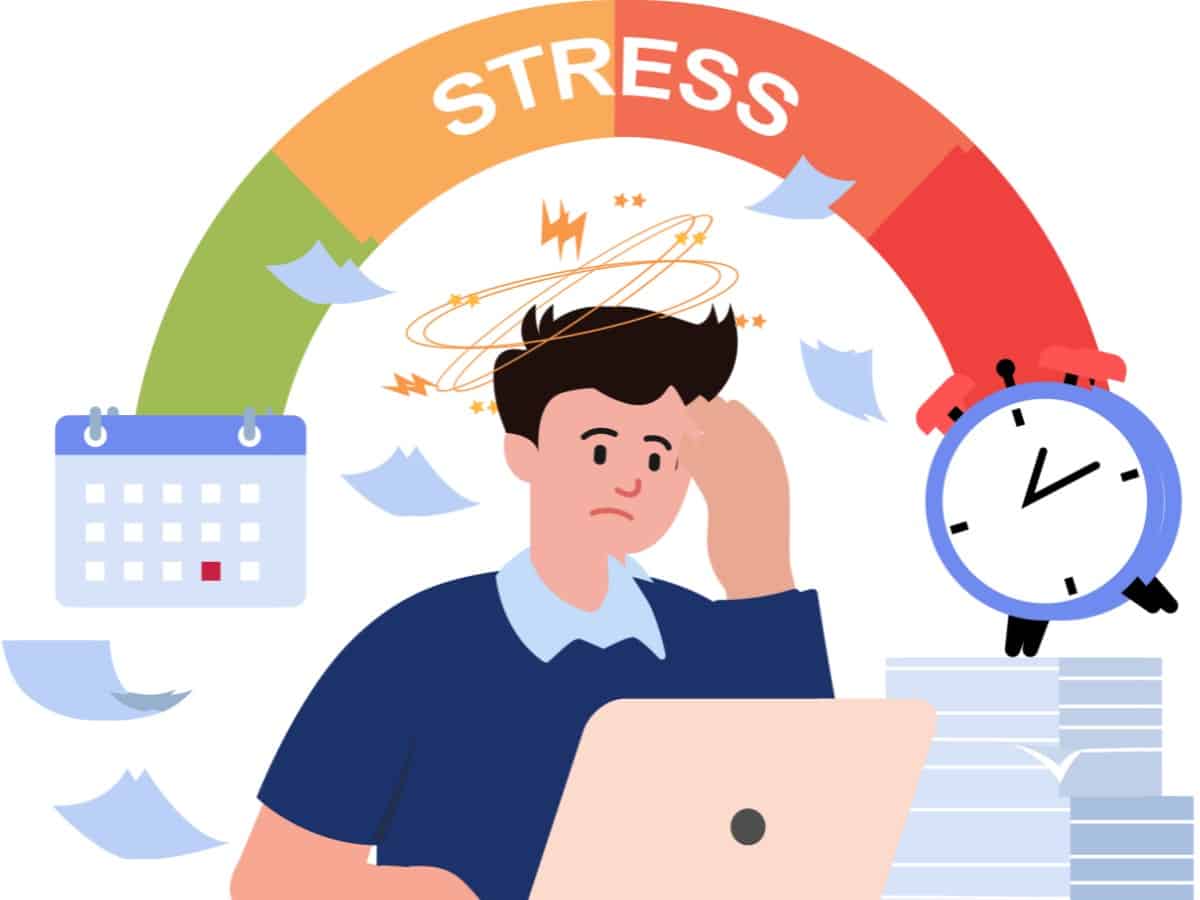The death of a 23-year-old fresher at Ernst & Young (EY), just four months into her job, reportedly due to overwhelming workplace stress, has sparked widespread outrage, highlighting the toxic work culture ingrained in corporate India.
32-year-old, Hyderabad-based clinical psychologist, Zoya Ahmed, shared that many of her clients feel guilt and shame when admitting they are experiencing workplace stress or burnout. She recalled a case of a 22-year-old man who recently entered the corporate world. He often expressed to Zoya that he felt compelled to “do it all” and “be resilient,” fearing that acknowledging his workplace stress would brand him as someone who “can’t work well under pressure,” jeopardising his job. He believed his seniors expected him to take on more work because of his age, viewing any admission of stress as a sign of weakness.
In conversations with Siasat.com, several employees voiced similar concerns about workplace stress. A Hyderabad-based web developer described how her manager consistently emphasized productivity at all costs. “He always says, ‘We have to do it angry, do it tired, but get it done.’ He repeats this in every review meeting, ignoring the fact that we’re human and exhausted,” she shared, underscoring the pressures of workplace stress.
Another employee, a 21-year-old who joined a software company six months ago, spoke about her struggles with overwork. “I feel tired because I have to prove that I can get the job done,” she said. As a woman, she feels unable to express her exhaustion for fear of jokes from her 60-year-old seniors about women not handling work pressure. “Taking a break would mean I’m not up to the mark compared to the men,” she lamented.
Meanwhile, a 27-year-old content creator working from home revealed he was forced to work despite feeling exhausted. “When I told my manager I was too tired to get out of bed, he said, ‘You’re working from home anyway; your rest can wait till tomorrow, but my deadline won’t.’ When I tried to explain my mental condition, he yelled, ‘Get out of bed or lose the job!’ I ended up having two coffees and working for seven hours straight,” he recounted, illustrating the harsh realities of workplace stress.
According to reports, many who suffer from mental ill health report that stigma, shame, and silence can be as detrimental as the symptoms themselves. Currently, 1 in 6 employees in the workplace suffers from a common mental health condition in any given week.
How to reduce stigma around mental health in the workplace
With mental health issues affecting one in four adults during their lifetime, it’s crucial to address the stigma surrounding these challenges in the workplace. Dr Shruthi Sharma, a counselling psychologist, emphasizes that many employees suffering from anxiety, depression, or burnout often conceal their struggles, fearing discrimination from peers or superiors. She urges employers to prioritize their employees’ mental health and take empathetic action to combat workplace stress.
Dr Shruthi points out that the distinction between manageable work pressure and harmful stress is often blurred in many workplaces. While some pressure can help keep employees focused and motivated, unmanageable levels lead to chronic stress, which can have serious consequences for both employee health and business outcomes.
Dr Shruthi highlights that managers play a pivotal role in fostering an environment where mental health can be discussed openly without judgment. “Managers should lead by example, sharing their own experiences and encouraging employees to speak up when they feel overwhelmed,” she states, underscoring the need for awareness of workplace stress.
Simple steps, such as using respectful language, rethinking sick days to include mental health breaks, and providing access to stress management programs, can cultivate a more supportive environment to manage workplace stress. Additionally, mental health first aid training for managers and employees can help recognize signs of mental distress, ensuring early intervention and access to resources.
By normalizing conversations about mental health and offering support, companies can break the taboo that prevents many employees from seeking help, making them feel valued despite the pressures of workplace stress.
Dr Shruthi also notes that coping with stress is a personalized journey, but she recommends several general strategies to alleviate work-related stress.
Regular exercise can effectively manage stress and enhance cardiovascular health. Practicing mindfulness techniques, such as meditation and deep-breathing exercises, can calm the mind and reduce stress levels.
Seeking support from friends, family, or colleagues is invaluable for emotional relief. Prioritizing sleep is essential for both mental and physical well-being.
Lastly, Dr Shruthi advises setting clear boundaries by learning to say no and managing workload effectively to prevent burnout.
Social media use triggers stress, unhappiness among materialistic users: Study
Recognizing workplace stress
Recognizing the struggles of the competitive world, Zoya Ahmed says employers should be vigilant for changes in behaviour that may indicate stress among team members. Some early signs of workplace stress include increased arguments, higher staff turnover, more reports of mental health issues, increased sickness absence, decreased performance, and an uptick in complaints and grievances.
Changes in individual behaviour can also signal stress, such as taking more time off, arriving late, displaying nervousness or restlessness, experiencing mood swings or withdrawal, showing a loss of motivation and confidence, and having heightened emotional reactions like increased sensitivity or aggression.
She further explains that chronic stress activates the body’s “fight or flight” response, raising heart rate and blood pressure. Over time, these changes can lead to cardiovascular diseases, digestive issues, and weakened immune systems.
Stress may also lead to unhealthy behaviours such as poor eating habits, binge eating, lack of exercise, smoking, excessive alcohol consumption, and drug dependency, all of which further deteriorate health in the face of workplace stress.







